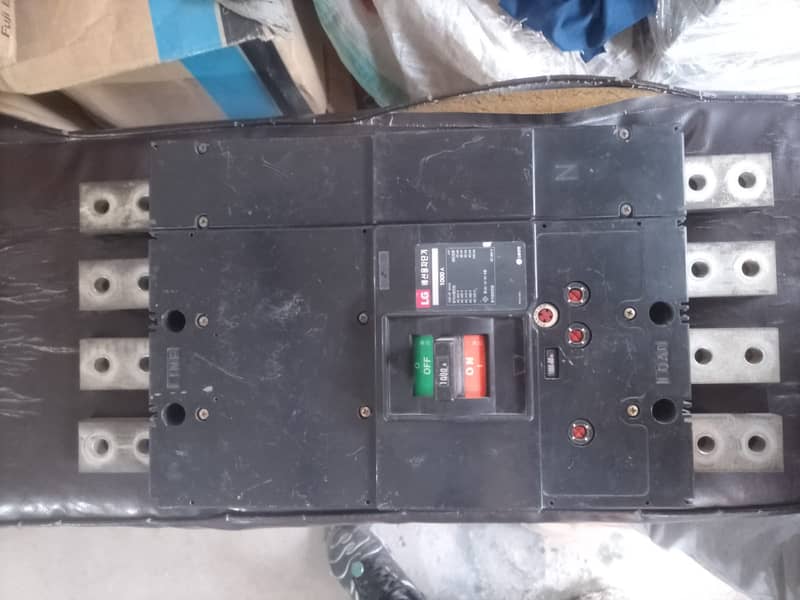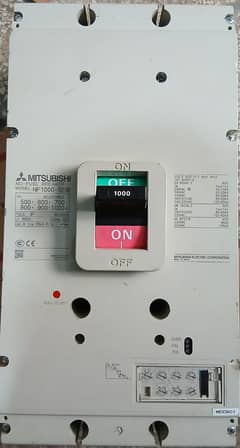1 / 1
Details
ConditionNew
Description
Circuit Breaker – Full Details
A Circuit Breaker is an essential electrical device designed to protect electrical circuits from overloads, short circuits, and faults by automatically cutting off the power supply when needed. It ensures safety in homes, commercial buildings, and industrial applications.
Types of Circuit Breakers:
1 MCB (Miniature Circuit Breaker)
Used for low-current applications (1A–125A).
Common in residential and small commercial setups.
Provides overload and short-circuit protection.
2 MCCB (Molded Case Circuit Breaker)
Handles higher currents (100A–2500A).
Used in industrial power distribution & large machinery.
Adjustable trip settings for better protection.
3 ACB (Air Circuit Breaker)
For high voltage and high current systems (630A–6300A).
Used in large industries, power plants, and commercial setups.
4 VCB (Vacuum Circuit Breaker)
Used for medium- and high-voltage (up to 38kV) applications.
Reliable and long-lasting for power stations and substations.
5 RCCB (Residual Current Circuit Breaker)
Protects against earth faults and leakage currents.
Ensures shock protection for human safety.
Related ads
Listed by private user
Marhaba Enterprises
Member since Aug 2018
See profile
Location
Pakistan
Ad id 1098092098
Report this ad

